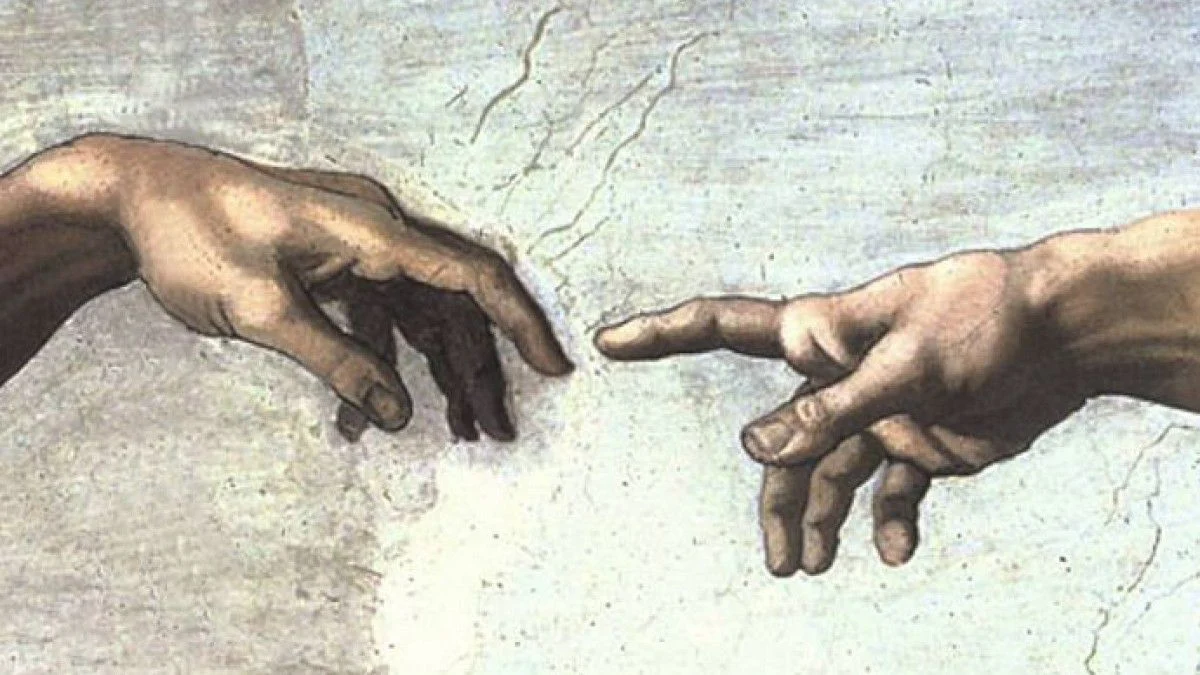In recent years, deism, which is believed to be spreading among the youth, especially those from religious families, deserves to be addressed from certain perspectives. Deism, in its broadest sense, is the belief in the existence of a single creator but denies that any existing religion provides accurate knowledge about this creator. It also rejects the notion that any human has received revelation from God. By envisioning a transcendent creator beyond nature, deism distinguishes itself from pantheism and atheism, while its rejection of religions and prophethood sets it apart from Islam, Christianity, and Judaism.
From a historical perspective, while deism was identified as a ‘heretical phenomenon’ in the 16th century on the continental Europe, it was widely known and mentioned in the literature after the mid-17th century. The primary reason for this was the coincidence of the last ‘heretic burning’ case in England around this time. When we look at the historical development of Deism, the efforts to defend religious freedoms and break the domination of the church in the social sphere, especially against the oppressive attitude of the Catholic church, come to the fore. In this context, one of the most basic features of deist literature is to focus on the irrational narratives in church doctrines and the Bible and to emphasize that religious truth and religious accuracy will not be under the monopoly of the church, and that the mystical and incomprehensible aspect of religion is contrary to human nature
On the other hand, it can be said that the social structure and mechanical understanding of nature that emerged after the Renaissance and Reform movements were also effective in the emergence of deism. Viewed from this perspective, deism has two distinctive features. The first is the relationship it establishes between the universe and God: God created a completely stable universe and left it alone. Morally and socially, deists claim that God did not send prophets, and those who claim prophethood are either charlatans or psychologically troubled individuals. The legal, moral, and political principles said to be conveyed by prophets are baseless and unnecessary. The only thing that can be considered God’s word is the laws of nature and the universe itself. Man needs nothing more than reason and the laws of nature to determine the right moral principles.
Deists believe that God designed the universe to function perfectly like a clock, and afterwards, the universe continues on its own in a largely mechanical way, without needing any further intervention. The deterministic and mechanical scientific understanding of the period influenced this conception of nature. Some incorrect assumptions such as the cosmological constant and misinterpretation of some constant parameters discovered in the early period also strengthened this approach. Consequently, according to deists, the belief that God constantly intervenes in the universe and creates miracles through prophets is absurd. Of course, deism’s understanding of nature has many inconsistent aspects. It is true that certain parameters in the universe exhibit stability in terms of measurability. The Hubble constant, the weak and strong nuclear forces, and the gravitational force are some examples. However, these are insufficient to support the idea of a self-operating universe that repeats itself in a cyclical manner without any change.
As observed in the case of our planet, Earth, it is possible to see that systems containing energy lose their stability when they left alone. Moreover, during the period when deism was most popular, it was not known that in radioactive decay the unstable nuclei were disintegrated by emitting radiation, and that energy, especially one that specific to entropy, changed in an unstable direction and unilaterally. Furthermore, with the discovery that the universe is expanding in an uncertain direction, that galaxies are moving away from each other, and the discovery of dark matter, which remains a mystery and cannot be precisely measured, it has become clear that the deist understanding of a closed-loop system that operates without any instability or decay is difficult to justify. Indeed, it can be said that such an understanding belongs to a period when scientific knowledge about the universe was quite limited, making it difficult to support this perspective anymore. Therefore, the notion that the universe functions like a clock without any alteration and that God has essentially ‘retired’ is not rationally tenable.
The question that may come to mind here is why God, who is capable of creating such a universe, did not create the universe in the way deists claim. First of all, it is possible to interpret this as a mercy from God. Because it is clear that a universe that operates independently and without decay would be conducive to deism through incorrect intellectual deductions. Moreover, it is evident that such a universe, operating on its own without the need for external intervention, would open the door to atheism too. Because it is more difficult and complicated to understand why such a universe (technically perfect) needs a creator and a creative cause, than a universe that does not operate in this way. In other words, God created the universe with complex and very delicate balances, making it understandable that it has a cause. Furthermore, for the same reason, not just for its creation; God created a world that is flawed and subject to corruption so that we can know mentally that it needs God to continue its existence after creation also. Therefore, while the universe stands on complex enough balances to allow us to know that it is the product of a delicate design, it is also unstable and prone to decay enough for us to understand that it cannot continue on its own.
It is clear that, cosmologically speaking, deism is not a rational choice. However, deism, which is assumed to have spread in our country mostly for moral and social reasons, needs to be addressed in this regard as well. Deism’s fundamental claim regarding social life and religion is that the human mind, as a result of God’s creation, can establish a perfect legal system in terms of justice and morality based on natural laws and conscience. The basic basis at this point is that God has given humans a mind with which they can govern themselves and that nothing more is required. Everything else (prophets, religious institutions, and systems) is problematic because it is open to abuse and constitutes an unnecessary barrier between humans and God. Of course, this claim carries an implicit arrogance and a veiled sense of superiority over the rest of society. For deists, ordinary people can only act morally and understand moral principles through laws and religious commands that are the product of revelation and only in this way they can grasp the moral. However, intelligent people do not need such guidance. Thanks to the intellect divinely bestowed upon them, they can recognize and act morally in every situation without needing the guidance of any religion.
The claim that individuals can establish a fair order by acting from natural laws and imitating the natural structure is closely related to the belief in science and technological development during the early modern period, as well as the utopian dream of a perfect world. Accordingly, as humanity advances technologically, it will agree on the most appropriate measures in accordance with God’s “will.” There are some presuppositions underlying this approach, which is nourished by social evolutionist approaches and progressive understanding of history.
One of these presupposition is the belief that history has a linear trajectory constantly progresses. History is moving towards a goal. Sometimes this goal just is a society, as in the case of Hegel, or, as in the example of Fukuyama, the broader notion of liberal Western society. The progress of all humanity and history is essentially aimed at reaching this point. Therefore, all humanity needs to do is adopt modern Western values and apply a moral scheme based on these values to their lives. Religions, on the other hands, are moral regulations that, at best, contribute to the progress of history but are outdated. This is because the values produced by a mankind who claimed to have received revelation in a relatively ‘primitive’ period of history are far from meeting the needs of an evolving and changing humanity. From this perspective, deism claims that the only moral theory that meets the criteria of truth and universality at the same time can be found in the rationality developed by the enlightened modern society.
Historically speaking, it is impossible to validate the above claims of deism. First of all, it is not possible to say that the technical progress of humanity (as Kant feared and tried to prevent) also corresponds to progress at the level of morelity and vritues. On the contrary, it is not difficult to see that humanity’s technical progress has increased moral weaknesses. For example, it is possible to say that societies have continued to increase their domination over one another through visible and invisible means, thanks to technical advancements. Additionally, the two world wars that took place between the 19th and 20th centuries, the period when religion was most withdrawn from the social sphere and increasingly confined to individual consciences, as well as colonialism and sharing wars that extend to present day are enough to question the morality of the “secular and enlightened mind.”Furthermore, it is noteworthy that under various ideologies that declared war on all manifestations of religion, both social and individual, practices that harmed human dignity almost became routine. Therefore it is difficult to clsim that modern societies raise more moral and virtuous individuals.
On the other hand, it is not hard to see that any reference system that seeks to replace religion’s claims of morality ultimately reinforces the impositions of powerful societies on weaker ones. Legitimization functioning of the global injustices by the League Nations and its successor, the United Nations which were established to prevent a war on global scale from occurring again and to solve problems that may arise between states through diplomatic means instead of war, is the most obvious examples of this situation. Moreover, it is historically proven that various legal and bureaucratic arrangements put forward by these institutions have been violated countless times by the same institutions in cases of their own need. The stance taken against the Palestinian resistance is the most recent and bloodiest example of the kind, but it is neither the first nor the last one.
So, what do all these realities tell us, particularly concerning Turkey and the Islamic world? Especially how should we approach the frequently voiced claim of a shift towards deism among the new generation? What kind of reality lies behind this claim?
These questions will be addressed in the next article.



